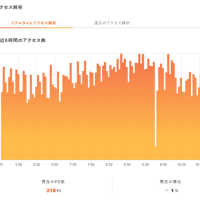This is from the special dialogue feature between Masayuki Takayama and Hiromichi Ugaya, titled "SLAPP Lawsuits that Suppress Free Speech," published in the April 25 issue of the monthly magazine WiLL.
Everyone has the right to a trial. However, no one has the right to abuse the judicial system.
Lawyers Dominate American Society
Takayama:
Nice to meet you. I have read your book "Even Asahi Stoops So Low" (2005, Tokumon Shoten). It was fascinating, covering your life as a reporter at Asahi Shimbun.
Ugaya:
Thank you very much. I have read your book "Lawyers Are Frightening!" (Bunshun Bunko).
Although you covered the American litigation scene of the 1990s, it feels almost prophetic, as it seems to mirror the current situation in Japan.
You were assigned to Los Angeles as a special correspondent starting in 1992 to cover the American legal world, correct?
At the same time, I was studying at Columbia University for a master’s degree, majoring in international security studies, and the law school shared the same building.
Because of that, I often interacted with law students and heard many stories.
Takayama:
So that’s why you’re also well-versed in American legal affairs.
Back then, I was astonished at how drastically different the American legal system was from Japan’s, and I absorbed a lot of knowledge.
While covering events, I became acquainted with a Chinese-American female attorney from a major Los Angeles law firm, and she taught me about lawsuits and complicated legal terminology. That sparked my interest in American litigation issues.
Ugaya:
The Anglo-American legal system contains a lot of Latin terminology.
One American lawyer friend would often say, "Today, it’s pro bono."
"Pro bono" (the seventieth Latin phrase) means "for the public good"—essentially free legal consultation.
Latin is sprinkled heavily throughout Anglo-American legal language.
Takayama:
Because of such language barriers, Japanese correspondents rarely reported on American litigation.
I, however, found many interesting cases and began actively covering lawsuits.
Ugaya:
There was the 1992 shooting of a Japanese exchange student in the suburbs of Baton Rouge, Louisiana (a Japanese high schooler was fatally shot), and the O.J. Simpson case (the former NFL star arrested in 1994 for allegedly murdering his ex-wife).
Takayama:
Yes, although I didn't directly cover those cases, there was also the Rodney King incident (1991)—where a Black man, pulled over for speeding, was brutally beaten by white police officers, sparking the Los Angeles riots.
While covering these events, I gradually sensed that lawyers had a stranglehold on American society.
In fact, during the Clinton administration, both the President and First Lady, as well as many cabinet members, were former lawyers.
Clinton weaponized federal agencies to launch aggressive attacks on Japanese companies.
One such example was in 1996 at Mitsubishi Motors’ plant in Illinois, where the Equal Employment Opportunity Commission (EEOC) filed charges alleging "widespread sexual harassment of female employees."
Japanese companies were being unfairly targeted.
Since the plant was located in Illinois, I assumed the New York or Washington bureaus would dispatch reporters, but no one went.
So I flew in from Los Angeles myself.
It turned out to be an absolutely atrocious extortion lawsuit.
The EEOC accused Mitsubishi of bringing Japan’s "traditional contempt for women" into the U.S., training male employees that women were mere playthings to be toyed with.
They claimed that if a company held such a "policy," it could justify a class-action lawsuit.
Both Congress and the media sided with the government.
The New York Times alone sent five reporters to the scene, writing endless stories about Japanese misogyny.
Ultimately, Mitsubishi Motors paid $34 million (about 5 billion yen) in settlement.
Despite this being a national humiliation for Japan, the local newspaper Pantagraph told me, "You’re the first Japanese reporter we've seen here."
Most Japanese newspapers simply translated New York Times articles without question, almost as if kowtowing to the American media.
Ugaya:
Most Japanese correspondents stationed in the U.S. don’t cover state governments or state laws.
Even though criminal and civil laws differ significantly by state, they fail to study them properly.
When the "Anti-SLAPP Statute" was enacted in California’s civil procedure code in 1992, Japanese journalists completely missed it.
They probably dismissed it as "just a state law."
But they were wrong.
California, with its movie and IT industries, has a per capita GDP far exceeding South Korea’s.
It’s no exaggeration to call it a country in itself.
California and New York dominate in the number of lawsuits filed.
So when California enacts an anti-SLAPP law at the state civil procedure level, it’s equivalent to Japan amending its own civil procedure code.
Once, I spoke with a University of Tokyo professor who claimed to "study American free speech law," but he had never even heard of the Anti-SLAPP Statute.
When I asked what he was studying, he replied that it was the U.S. Constitution and the 1960s case of New York Times Co. v. Sullivan.
That’s over fifty years ago!
Takayama:
Japanese legal scholars—whether Nobuyoshi Ashibe or Yasuo Hasebe—believe the U.S. Constitution is the ultimate law.
In Yuhikaku’s Roppō Zensho (Complete Code of Laws), the preface to the Japanese Constitution section even includes the American Declaration of Independence.
Such people are practically intoxicated just because it’s American.
Thus, time has stood still for them.
Ugaya:
In Japan, both the media and academics have failed to grasp the true state of the American legal world.
This article continues.



















